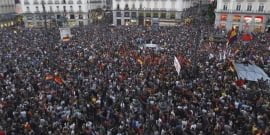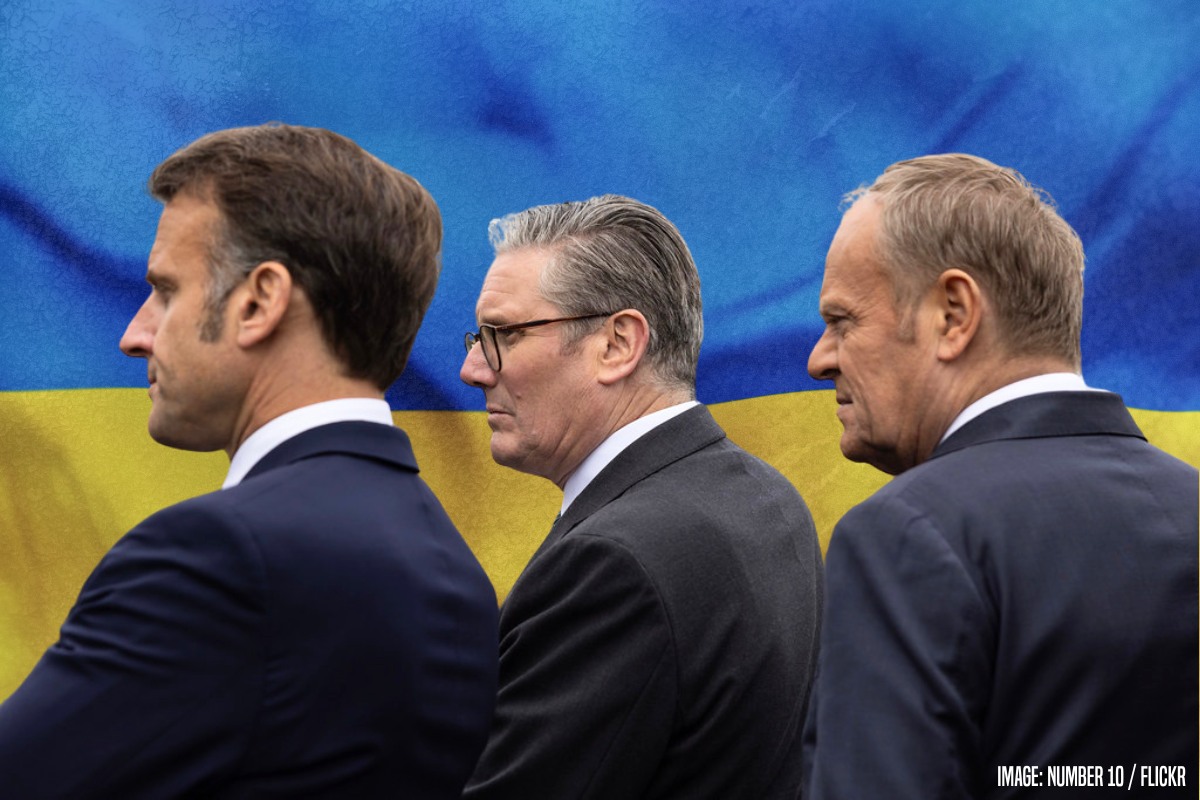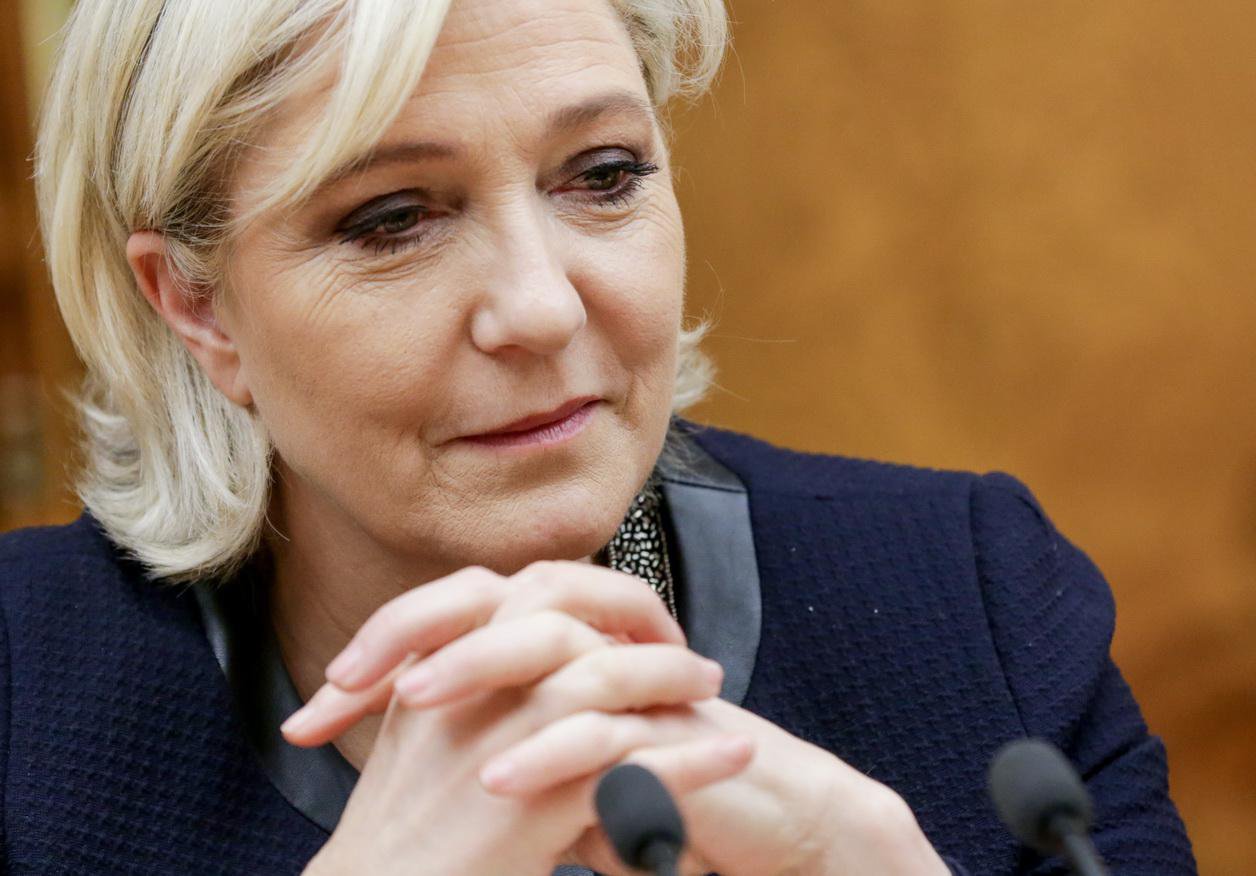Monday saw the announcement by King Juan Carlos of Spain of his decision to abdicate. That same evening, hundreds of thousands of Spaniards took to the streets throughout Spain and the rest of Europe demanding a referendum on the return to a republic. We publish here reports of the protests in Spain and Edinburgh.
Monday saw the announcement by King Juan Carlos of Spain of his decision to abdicate. That same evening, hundreds of thousands of Spaniards took to the streets throughout Spain and the rest of Europe demanding a referendum on the return to a republic. We publish here reports of the protests in Spain and Edinburgh.
We publish also a statement by Lucha de Clases, the Marxists in Spain, on the abdication of King Juan Carlos and the question of a referendum.
Spain: Hundreds of thousands take to the streets demanding a republic
By Lucha de Clases
On Monday evening hundreds of massive demonstrations and rallies took place in a semi-spontaneous manner across Spain to celebrate the abdication of King Juan Carlos and to call for a republic. The central slogan was the demand for a referendum for the people to decide whether they want a monarchy or a republic.
The number of rallies and demonstrations that took place across the country is countless. Not only did they happen in all the provincial capitals, but also in the smaller towns.
Considering that the first calls for the mobilizations began to circulate via social media around midday, the response was impressive, both in the number of protesters and in its geographical expanse. In the light of the available information, we estimate that several hundred thousand of people took to the street yesterday evening to protest across Spain.
It is important to point out that, according to the reactionary Spanish law, hardened by the PP government, all of these rallies and demonstrations were illegal since they failed to follow the complicated bureaucratic procedure which dictates that they should have informed the authorities of the gatherings. But, who was going to inform the authorities? In the name of whom? This shows the impotence of the government before mass popular mobilizations. And on this occasion they were wary of introducing agent provocateurs to incite violence in view of the possible consequences that a police crackdown of the rallies might have had.
In dozens of cities and towns republican flags were hoisted on public buildings, chiefly in town halls governed by the United Left (IU), as well as those hung outside the windows and balconies of town halls and regional parliaments held by the right by officials and councillors from IU and other leftist organizations, as happened in the Madrid town hall or in the Valencian regional parliament (Les Corts).
The atmosphere was electrifying, brimming with happiness and euphoria. The chanting was constant. The most widespread slogan was: “Spain tomorrow will be republican!” Others had a humorous tenor, like “Felipe, hurry up, the third one is coming!”, referring to the third opportunity to build a republican regime in the Spanish state after the last two republics (1873 and 1931). In a similar vein, people chanted: “One, two, three, republic again!” Also in keeping with the sense of humour, shouts were heard of: “through the Bourbons to the sharks!” Of course, the chant that has now become commonplace in any demonstration, “Long live the struggle of the working class!”, was ubiquitous, evidencing the class character of the protests.
In Madrid, where the biggest rally took place, some 40,000 people (20,000 according to the police) gathered at the Puerta del Sol and the surrounding areas, with people coming and going. Hundreds of tourists that were calmly walking around the square were suddenly overwhelmed by the massive and unexpected human mass that they had to give way to, although some joined in with curiosity and enthusiasm.
In the following video, taken from the social media, one can appreciate the magnitude of the gathering in Madrid:
There were also big rallies in the largest cities, Barcelona, Valencia, Sevilla, Zaragoza, Bilbao. The demonstration at Granada is worth mentioning; the protesters lowered the monarchical flag that is located in the Plaza del Triunfo and hoisted the republican one instead, an act that was cheered by the protesters. Today, the government and the police issued an arrest warrant for the person responsible for this audacious deed; we denounce this as an act of repression.
Even if the organizations of the left and the social movements participated in these mobilizations, their role in organizing them was minimal and there weren’t even any joint statements calling for people to participate in the protests. Consequently, there were hardly any speakers in any of the rallies. This, however, is to a large extent understandable in view of the fast pace at which events unfolded yesterday.
The Junta Estatal Republicana (National Republican Committee), a platform that clusters dozens of left wing and social organizations that are in favour of the Republic, has called demonstrations in different cities, like Madrid, where we expect a better organized and equally massive protest.
It is significant that rallies also took place in other European cities, held by emigrant, students, and Spanish tourists in Paris, Edinburgh, Brussels, London, and other cities.
The general atmosphere is of great happiness and enthusiasm. There is greater confidence among the forces of labour, the youth, and social activists. The result of the EU elections has represented a heavy blow to the parties of the monarchist-capitalist regime and for the submissive and Social Democratic leadership of the PSOE, with a strengthening of the more leftist and anti-capitalist tendencies in society. The abdication of King Juan Carlos is not unrelated to this atmosphere, which has not come out of the blue.
In the course of the last four years, the Spanish working class, the youth, and millions of common people, forgotten and crushed by the social and economic crisis, have become the protagonists in an almost continuous wave of mass mobilizations, that is still in its upswing, despite the absolute passivity of the trade union leaderships of the UGT and the CCOO [the biggest unions in Spain], who hold the greatest power in the country to call for mobilizations.
The most significant thing is the political consequences that these mobilizations are having and the increasingly anti-capitalist character of the slogans and demands of the movements, directed against the bankers and big business.
It is now time to launch a popular mobilization on the streets to demand the beginning of a constituent process to do away with the old regime, to immediately hold a referendum for the people to decide between monarchy and republic, and to push for a new constitution and a democratic republic that grants full democratic rights to the population and peoples that make up the Spanish state. But we must connect the latter with the expropriation of the Spanish oligarchy (formed by no more than 100 families) that controls the commanding heights of the economy, in order to put them into the control of the working class and the whole of society, allowing us to plan the economy in the interests of the vast majority.
A new generation of young working-class, youth, and social fighters are becoming more and more experienced in the course of the struggles, and this is just the beginning. The struggle for a republic will not stop this time on the limits of capitalism but will raise the slogan “We want a Socialist Republic”, and this will have repercussions not only in the Spanish state but also abroad.
Published on In Defence of Marxism
Edinburgh Spanish community demonstrates for a republic
By Julia Sanz Vidania and Paul Cumming of the Edinburgh Marxists
An impressive rally was held in Edinburgh on Monday only hours after King Juan Carlos announced his abdication thousands of miles away in Spain. The protest of upto 150 people was called to coincide with mass demonstrations in cities all across Spain and amongst Spanish communities abroad. Edinburgh has a very large community of young Spaniards and they now constitute one of the largest groups in the city. They have come in their thousands after being driven into economic exile by the failures of the capitalist economy in Spain to provide even a basic living and hope for the future.
Unemployment levels amongst the youth are astronomically high and wages and working conditions are under attack everywhere. The government of the PP acts with arrogant impunity as it systematically reduces the country to ruins in order to preserve the current corrupt system. The present regime is tied hand and foot to the discredited political settlement imposed during the ‘transition to democracy’ which King Juan Carlos was a key figure in securing – a fact the bourgeois press find honourable. However, this democracy has only proved to be a democracy for the wealthy oligarchy allowing them to oppress and rob the Spanish people. The present protests against the monarchy feed into the general rejection of the political and economic system as a whole. It forms the latest response to the crisis after a build-up of mass mobilisations, strikes and campaigns in recent years demanding an end to savage austerity and a future where the needs of the people are put first.
The present protests also reflect a natural continuation of the demands that Spanish people have made for 4 years now, summarised into the original slogan of May 2011 ‘Real Democracy Now!’. Significantly, the demands for a referendum have come solely from the left (i.e. United Left, the new formation Podemos, and Equo, and supported by trade unionists), which represents a general move to the offensive for a left wing traditionally used to being on the defence. Not surprisingly, the near-to extinct PSOE has continued supporting the monarchy, even though its Youth section has formally come out in support of a referendum.
In Edinburgh the protest was remarkably well attended given it relied on word of mouth and at a very short notice. The mood was jubilant and bold with chants like ‘The Borbons to the sharks’ and ‘Spain tomorrow will be republican’. It was clear that there is a real thirst for an alternative to the current status quo. Copies of the Lucha de Clases (The Spanish section of the IMT) statement on the abdication, which argues for a socialist republic, were enthusiastically received and protesters helped distribute them amongst the demonstration, provoking political discussions. This was probably no coincidence as the abdication of the King has been seized as an opportunity for breaking with the monarchy along with the hated political system and opening the road for radical change and real democracy.
Denying this referendum to the people further exposes the anti-democratic character of the Spanish state, which is now hoping that a new, younger face untouched (so far) by the political scandals of corruption and fraud surrounding the monarchy as well as the traditional parties, will bring some kind of stability and confidence in the regime. The PP government hope that somehow by ignoring the vast majority of the population, it will all go away. However this class struggle for power will not be disappearing and the events in Spain will be reminding the ruling classes throughout the world that their days are numbered.
Published on In Defence of Marxism
Spain: The people must decide: Yes to the republic, no to the monarchic succession – referendum now!
By Lucha de Clases
The abdication of King Juan Carlos is an attempt to rein in the crisis of the post-1978 regime, which has been widely discredited in the eyes of the people in the midst of the greatest economic and social crisis that the Spanish state has undergone in decades.
- Mobilize the people to demand a constituent assembly to derogate the 1978 Constitution!
- For a new Constitution that establishes a republic and grants full democratic rights to the peoples that make up the Spanish state!
- The economy must be put in the hands of the working class and the exploited sectors!
The regime of 1978 gave rise to alimited bourgeois democracy in a deal struck by the successors of the Franco regime (Suárez, Fraga) and the reformist leaders of the workers’ parties (Carrillo and González). The farce of the “democratic Transition” was the mechanism whereby the revolutionary struggle of the youth and the workers against the Franco dictatorship was aborted, giving impunity to the dictatorship’s crimes, enshrining Franco’s flag, and imposing the unity of Spain, a unity safeguarded by force by the army.
The (now former) King Juan Carlos Borbón has not been able to conceal his sinister role in our recent history: hand-picked by the dictator Franco, he always had a special relationship with the ruling sectors of the capitalist class, which spared no expense when it came to granting economic favours to the royal family. There is still much to find out about the ambiguous and obscure role Juan Carlos played in the putchist plot of February 23 1981. The true role of Juan Carlos’ monarchy (which is now expected to be taken over by his son Felipe), has not been that of a great father to the citizens, as claims the spurious propaganda that unfortunately was endorsed by many left-wing organizations, but that of undemocratically holding all sorts of important constitutional powers: right of veto over fundamental laws, head of the Armed Forces, capacity to declare the state of emergency and exception… In short, becoming a possible tool to lump together the forces of the reaction against the people by making use of those powers.
Today, those who for decades had control over the economy and the most important state institutions: the Monarchy, the governments, parliament, the judiciary and the repressive apparatus, have completely failed to offer a future to millions of workers and citizens, and to present a solution to the economic and social crisis that has struck Spanish capitalism. On the contrary, what they have to offer is an unemployment rate of around 6 million people, growing poverty, low wages, precarious employment, emigration, the axing of social services, impunity and accumulation of wealth for the powerful, an increase in police and state repression against the struggling workers and youth. It is time for the people to raise its voice and take their fate into their own hands. The abdication of the King opens a possibility in the eyes of millions to reconsider the question of the Republic. The extraordinary process of mobilization that we’ve witnessed in the past 3 years gives us a clear lesson: the overwhelming power of mass movements.
For some time now, the most intelligent sectors of the bourgeoisie have become aware of the discredit which the (until today) head of state had been suffering, submerged along with the rest of his family in corruption and personal scandals, which add to the instability which riddles the Spanish state since more or less the outbreak of the Indignados movement in 2011. It’s no coincidence that all the official polls show a growing rejection of the Monarchy among the population and the strengthening of a republican sentiment, particularly among the youth.
Now, the politicians of the regime will intend to take us again into the politics of “consensus” of the 1970s, which secured the regime of exploitation dominated by the 100 families of potentates that lined their pockets during the Franco era, after having crushed the struggle of our forefathers. But the new generation demands the end of the Monarchy and the regime that Franco passed on to us: the fake democracy that allows us to elect every four years the government of the moment so that it can keep following the dictates of the economic oligarchy that rules the country.
With the enthronement of Felipe of Bourbon, the old regime is trying to varnish an institution that is antidemocratic in essence. We don’t want a SUCCESSION, but an ABOLITION of the fascist and feudal remnants in the Spanish state, one of which is the monarchy.
The words uttered by the president, Mariano Rajoy, to communicate the abdication of the King: “I want to inform that the process will take place in a context of institutional stability”, go against the grain of events.
Aware of the moral and political downfall of the crown and of Juan Carlos, the abdication of the King in favour of his son had been debated and decided upon by the upper echelons of power months ago. Only a spark was needed to make the succession inevitable.
The catalyst for the succession were the elections of May 25, which have revealed the extreme weakening of the two parties around which the regime hinges, the PP and the PSOE, and the strengthening of the leftist tendencies in society, with a marked anti-capitalist and anti-monarchist character, and which have raised the alarms of the old regime. They intend to use the new and amicable face of Felipe of Bourbon to patch up a battered system that is falling to pieces.
In this situation, the tasks that we are faced with are:
- In the first place, we have to launch immediately a mass mobilization on the streets to demand the start of a constitutional process to do away with the antidemocratic Constitution of 1978 and to put forward a referendum in which the population freely decides whether it wants a Monarchy or a Republic. Multiple demonstrations in different cities have already been called in the social media. We encourage the workers, the youth, and social and popular activists to participate massively in these mobilizations. After the results of the European elections the responsibility falls on the leaders of PODEMOS (“We Can”) and IU to set in motion a movement in the coming days and to call for mass rallies for the republic in the weekend.
- The elections of May 25, and the subsequent situation they generated, has expressed a clear mandate: the confluence of the organizations of the left, the trade unions, the social movements, the “Dignity” platforms that launched the March 22 demonstration etc. that have put across their rejection to the old regime and their wish to build a broad united political front. The leaders of the United Left, PODEMOS, and the other social and popular movements must take a step forward to carry through this demand.
- A democratic and federal republic would represent a great step forward, albeit incomplete. True sovereignty for the people involves the control and use by society of the commanding heights of the economy (the banking sector, the big corporations and the multinationals, and the big land estates), under the management of the workers that run those enterprises, so that they serve the needs of the vast majority which is suffering from the effects of the crisis and the injustices of the system. Therefore, we must link the struggle for the republic with the expropriation of the commanding heights of the economy, to take them away from those 100 families which own the country. That is to say, we must fight for a Federal Socialist Republic.
- Popular mobilization for a republican constituent assembly. Everyone out on the streets in this afternoon’s mobilizations.
- For a political front of the left, the social movements, and the working-class organizations.
- For a Federal Socialist Republic.






